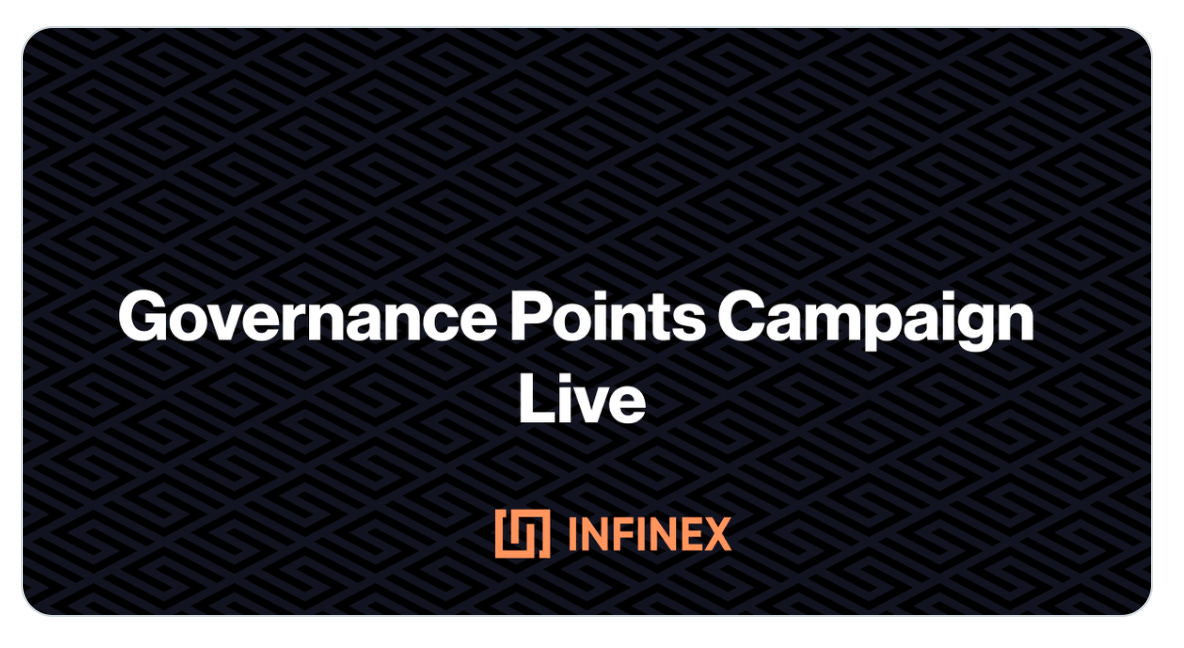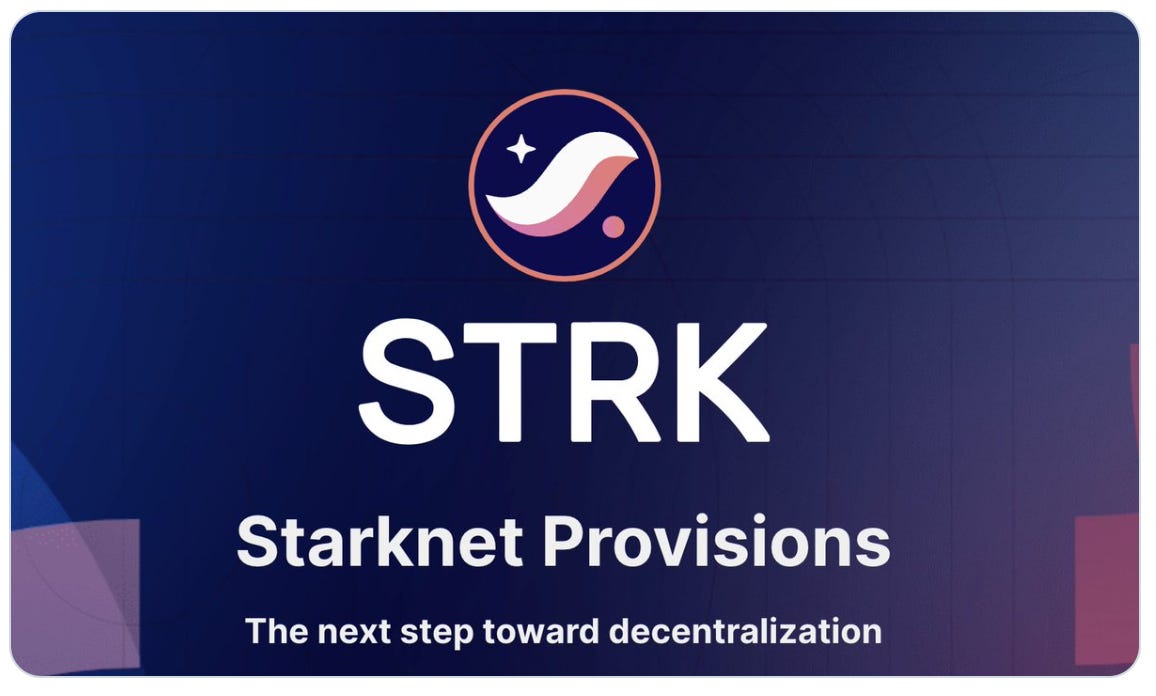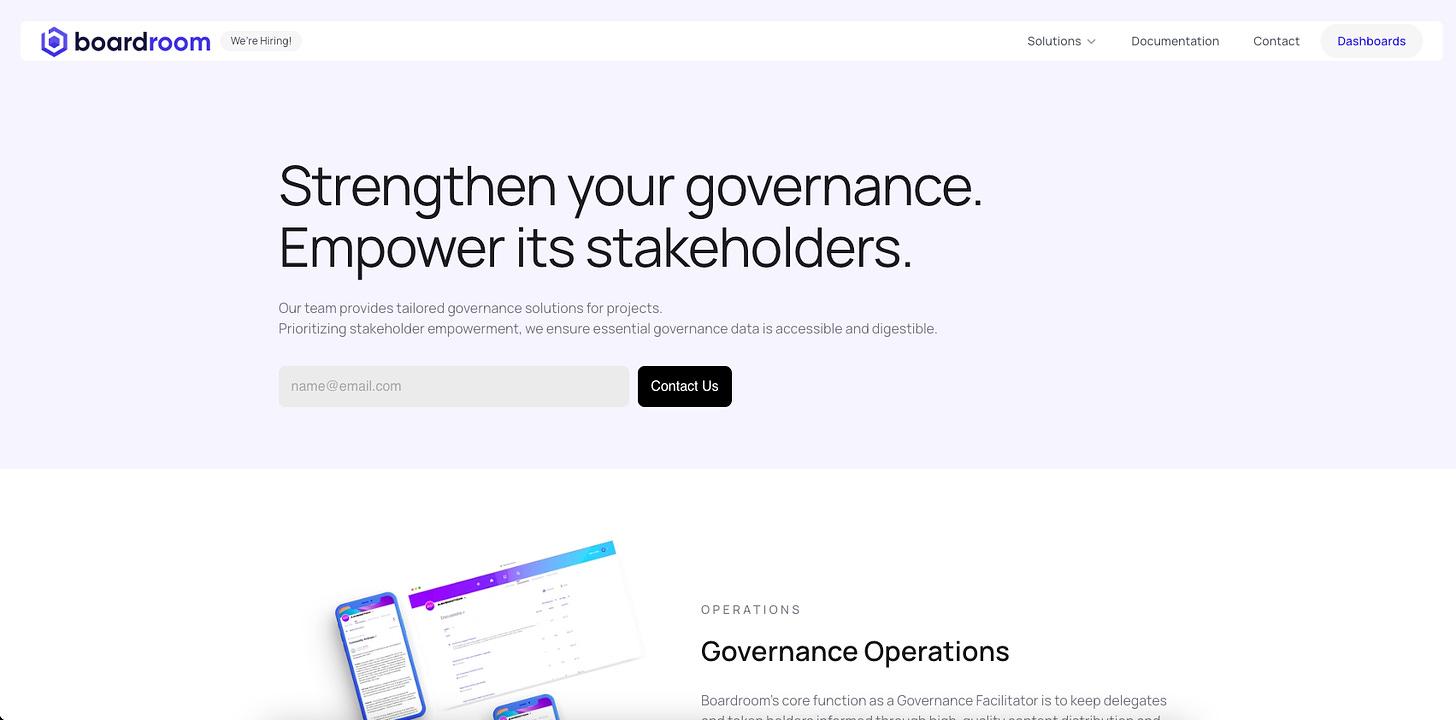🗳 This Week in Governance - Feb 15: Points for Governance
A weekly resource covering crypto governance, politics, and power.
📣 Key Points
Euler Labs introduces a custom governance portal
Infinex launches a governance points campaign
Gitcoin debates focusing grants on open-source software
Decentraland is considering several changes to its voting processes
The upcoming Starknet STRK airdrop will have implications for governance
Voting Activity (L7)
🗳️ 91,490 ballots
👥 35,180 voters
📜 312 proposals
🌐 70 active DAOsQuery more data using the Governance API
New Additions & Experiments in Governance
As we noted in last week’s newsletter, a number of DAOs are actively advancing new governance approaches and are seeing sizable batches of proposals put forward at once (see SafeDAO’s OBRRA proposals and Optimism’s Mission Requests).
In more recent governance-advancement news, we saw that Euler Labs, the team behind the DeFi protocol, has introduced a custom governance portal designed to enhance the governance experience for its community, merging the functionalities of apps like Boardroom, Snapshot, and Tally into a single, user-friendly platform. This initiative aims to make governance more accessible and engaging, encouraging community involvement in decision-making processes such as protocol updates and fee adjustments.
Meanwhile, the Infinex community has launched a Governance Points Campaign to foster engagement, allocating 50 million points for active participation. Members can earn points through content creation on Twitter, active engagement in Discord, participation in governance calls, proposal authoring, and involvement in Discord competitions and events. This initiative aims to deepen community involvement and influence within Infinex's decentralized governance structure.
Continuously Improving: Governance Refinements
Other communities are focusing more on making minor changes to their governance processes. Adjustments are being suggested for the ArbitrumDAO Constitution and the Security Council election process, for example, to address issues with fairness and clarity in the current election process and ensure alignment with the updated constitution.
Some of these smaller-seeming changes could nevertheless have a significant impact. For example, a proposal in the Gitcoin forum suggests that the Grants Program focus more on Open Source Software and introduce governance-led community and education rounds. These adjustments are primarily based on insights from the 19 previous funding rounds. However, the community response has been mixed, with some expressing excitement about the focus on Open Source Software and the autonomy for community rounds. In contrast, others express concerns about the high entry bar for community rounds and the potential impact on smaller projects.
Do Better: Governance Overhauls
We also see that some DAOs are attempting — or at least considering — major internal overhauls. Decentraland, for one, seems to be reassessing its structure and governance methods, as can be seen from a slate of proposals currently live. One proposal argues against “decisions being made behind closed doors” — preventing unauthorized interference in grant and proposal decisions without DAO consent. Another proposal suggests refining the moderation strategy within the DAO community by transitioning the role to a new team focused on managing the Code of Ethics application. A third proposal recommends considering amendments to the Code of Ethics to address instances where community members vote for their grants, proposing the invalidation of such grants and advocating for their revocation before fund allocation. A fourth proposal advocates for refining Decentraland's voting process into three stages based on $MANA, land ownership, and DCL names to address dissatisfaction with the current system. Finally, another proposal suggests implementing a system where grant power (GP) and voting power are tied to customer spending within the DAO, allowing individuals to invest their GP in grants while ensuring transparency and accountability.
Getting Started: Governance at Birth
And finally, here’s a governance development to keep an eye on: While it might not be your first thought when you hear the word “airdrop,” Starknet’s recent description of its upcoming STRK airdrop has significant implications for governance. The Starknet Provisions Program will allocate over 700 million STRK to the community, with distribution starting on February 20th, 2024, through a designated portal. STRK will be used for “shaping the long-term evolution of the Starknet protocol through governance votes,” the announcement explains.
Looking to implement initiatives for your DAO? Work with the Boardroom Team
📜 Highlighted Proposals
Aave: Orbit Program Renewal
This proposal by Marc Zeller from Aave Chan Initiative suggests renewing the Orbit program to compensate recognized delegates with GHO and ETH for governance activities, focusing on proposal creation and payload deployment. It introduces gasless voting via Gelato integration and an Orbit Tracker app for delegate oversight, with eligibility based on voting power, participation rate, and platform maturity. The budget outlined includes 80,000 GHO and 4.9273 ETH for gas rebates, aiming for transparent and accountable governance engagement within the Aave ecosystem. Voting concludes on February 16th.
Purple: Proposal for Purple to support Farcon
The proposal seeks 10 ETH for Farcon and its accompanying Hackathon to fund high-quality swag and venue costs to enhance the Farcaster community's growth and engagement. The funding will also support assistance stipends for participants, ensuring inclusivity. The initiative emphasizes the importance of in-person events in strengthening the Farcaster ecosystem and fostering deeper community connections. Voting ends on February 19th.
Uniswap: Deploy Uniswap V2 on all chains with V3
This proposal suggests deploying Uniswap V2 on all chains with a canonical instance of Uniswap V3, aiming to address the safety concerns arising from modified V2 forks and to meet the demand for traditional AMMs on new chains. This move also intends to enhance execution quality for small-volume swappers using the Universal Router. The deployment process will mirror that used for V3, ensuring that V2 deployments are governed consistently across chains and cataloged for ease of reference. Voting ends on February 17th.
📚 Reads
Supper, place, village, city, state, by Jonathan Hillis
Positive Sum Design with Crypto, by Shinya Mori
Arbitrum Foundation 2023 Transparency Report, from the Arbitrum Foundation
🎧 Listens
News & Interview with Joseph Schiarizzi from Open Dollar, on Just DAO It!
OpenSource Observer w/ Raymond Chang, on Green Pill
Unlocking Human Potential w/ Julia Lipton, on Rehash
💭 Ecosystem Takes
🎈 Have a Meme
📮 Stay Up to Date
Follow us: Twitter | Discord
Subscribe to: Newsletter | Mirror | Apple | Amazon | Spotify











